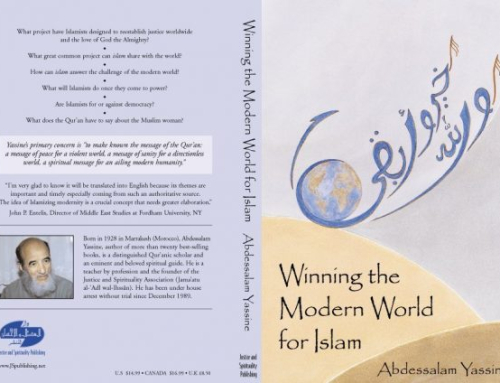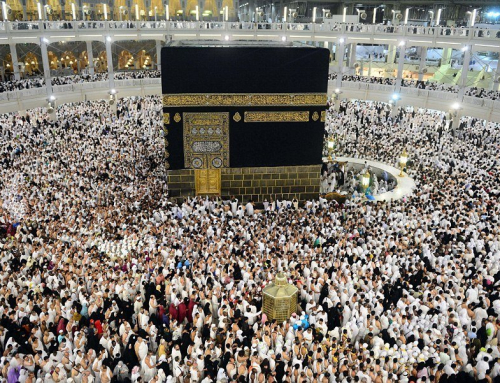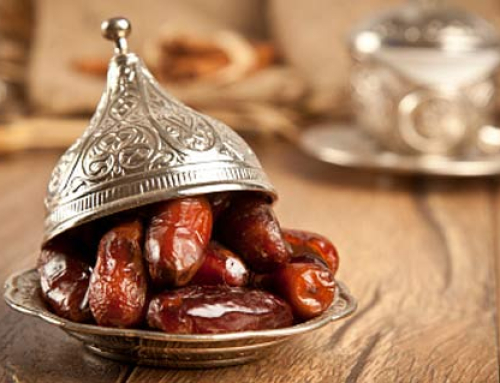
Abdelilah Belkari
December 12, 2023
By Abdelilah Belkari, Translated from Arabic by Heather Jone
Introduction
The Islamic Sharia places great emphasis on the family because it is the fundamental building block for nurturing righteous individuals and fostering a mature society. The strength and productivity of a society are directly linked to the virtue and cohesion of its families. The family serves as a noble sanctuary, a divine refuge provided by the Almighty for both men and women to find stability and dwell in peace.
Islam, from its inception, has focused on the family, contemplating its formation, continuity, and establishment on robust foundations that ensure not only happiness but also the presence of serenity, affection, and compassion. This attention persists to ensure complete stability, comfort, and tranquility within Muslim households, transforming them into true sanctuaries for raising generations that proudly carry the banner of Islam and illuminate the horizons.
What, then, are the pillars upon which family stability is built, and what are the anticipated outcomes?
Pillars of Family Stability
In his renewal project, Imam Abdessalam Yassine placed significant emphasis on the construction of Muslim families. He believed that the stability of society is intricately linked to the solid foundation of these families. The Imam, may God have mercy on him, concentrated on two Quranic principles that serve as the cornerstone for family stability in fulfilling their intended roles. These fundamental principles are qiwāma and ḥāfiẓiyya. From these, numerous principles can be derived, forming the basis for the construction and stability of families. By adhering to these principles, families can effectively carry out their responsibilities, among which I highlight the following:
The Pillar of Faith
The connection among members of a Muslim family transcends the confines of a worldly, materialistic association, extending beyond the limitations of time and space. It is a robust, divine, and religious bond governed by the principles of faith in God, affection for Him, and love for His Messenger, peace be upon him, as well as all other acts of righteousness approved by the Islamic faith. As stated by the Imam “A virtuous woman for a virtuous man is an unparalleled blessing; together, they collaborate in both their worldly and the hereafter pursuits”[1]. When this bond is founded on God-consciousness, it transcends into the hereafter beyond mortal existence, as God, the Almighty, has stated: “the Gardens of Eternity, which they will enter along with the righteous among their parents, spouses, and descendants. And the angels will enter upon them from every gate”[2] surah Ar-Ra’d (13:23). However, there is no way to establish this foundational faith and live within its embrace within the family without making a wise choice of a Muslim, whether male or female, as a life partner. Marriage is a fundamental aspect of human nature and a societal necessity, holding a noble position. Hence, it is crucial for a Muslim to exercise utmost diligence in the meticulous selection of a spouse, in compliance with divine and prophetic guidance on this matter. God, the Almighty, has stated in surah An-Nur: “Marry off the ˹free˺ singles among you, as well as the righteous of your bondmen and bondwomen. If they are poor, God will enrich them out of His bounty. For God is All-Bountiful, All-Knowing”[3] (24:32).
The essence of this matter lies in the choice rooted in faith and good character, both from the husband and the wife. It acts as the safeguard for family life, where faith straightens the spine of the household and fortifies its pillars, enabling it to face internal and external challenges with utmost readiness.
The Social Pillar
By this pillar, I refer to the commitment to fostering affection, mutual respect, and collaboration in caring for the family among its members. Imam Abdessalam Yassine stated, “In the intimate embrace of love and deep compassion, a harmonious marriage distinguishes itself through intentional commitment, tangible actions, and divine blessings that align with human instinct. It is through these qualities, not merely a legal contract, that stability is cultivated within the household. As stability takes root in the home, it ripples outward, fostering societal harmony”[4].
This can be observed in the absence of the husband imposing his will on his wife and children, and the wife refraining from rebellion against her husband. Instead, marriage is characterized by love, compassion, and mutual cooperation, as God, the Almighty, stated in surah Ar-Rum: “And one of His signs is that He created for you spouses from among yourselves so that you may find comfort in them. And He has placed between you compassion and mercy. Surely in this are signs for people who reflect.”[5] (30:21). This illustrates the Creator’s wisdom in crafting each gender to complement the other, meeting their inherent needs—psychologically, intellectually, and physically. “In their union, they discover comfort, tranquility, and stability, finding in their togetherness both a sense of home and self-sufficiency, accompanied by love and compassion. This is due to their psychological, neural, and organic composition, which significantly fulfills each other’s desires, hence, their unity results in the establishment of a new life displayed in a new generation”[6].
The Economic Pillar
Islam has methodically structured financial matters within the family, delineating who bears the responsibility for financial support and for whom it is obligatory to provide. It has clearly defined the boundaries and methods for fulfilling this obligation, stressing that financial support is not merely a charitable act but a religious duty. It is the husband’s duty to financially provide for his wife and parents, even if his parents hold different religious beliefs. Financial support extends to children as long as they are young and in need, and within reasonable means, it is obligatory for siblings, uncles, aunts, and beyond, provided they are impoverished and incapable of earning a livelihood. God, the Almighty, stated in surah Al-Anfal: “But only blood relatives are now entitled to inherit from one another, as ordained by God. Surely Allah has ˹full˺ knowledge of everything”[7] (8:75). This reflects Islam’s perspective on family, aiming to establish a strong societal fabric by cultivating interconnected networks, starting from the extended family. The aim is for individuals not to live in isolation, solely preoccupied with their immediate households, and indifferent to their extended relatives.
Realizing Outcomes of the Household Stability
First: A Dignified Life
A dignified life is one of the household stability’s realizing outcomes, rooted in faith in God, the Almighty, and righteous deeds given that a truthful good life is of the one that responds to the call of God, the Almighty, and His Messenger, peace and blessings be upon him. God, the Almighty, said in surah An-Nahl: “Whoever does good, whether male or female, and is a believer, We will surely bless them with a good life, and We will certainly reward them according to the best of their deeds.”[8] (16:97). In this, God, the Almighty, has informed and promised those that combine faith and righteous deeds with a life of goodness and a generous reward in this worldly life and the hereafter.
When a family is founded on the fear of God, with each member bearing their designated responsibilities, the believing woman operates within her realm, aligning her actions with her nature and femininity. This encompasses overseeing household management and undertaking the upbringing of children. Simultaneously, the righteous man operates within his domain, in harmony with his instinct, serving as a protector of the family against the adversities of time and the challenges of life. Through this collaborative effort between spouses, optimal outcomes are achieved in raising virtuous children and fostering a generation of believers who carry the radiant light of faith in their hearts. The entire household thrives in the nurturing shadows of love, peace, and dignified stability.
Second Outcome: Righteous Upbringing
The family serves as a natural sanctuary, tasked with protecting, nurturing, and fostering the holistic development of children, nurturing their bodies, minds, and souls. Within such an environment, feelings of love, compassion, and mutual support flourish, leaving an indelible imprint on their character for a lifetime. Guided by the family principles, children absorb the essence of human existence, define their goals, and learn how to navigate interactions with others.
In light of the scientific and technological progress in our era, coupled with the swift and successive transformations affecting society, there has been a negative impact on the family’s role in the upbringing of children. Hence, it has become of paramount importance to accompany children both within and outside the home, considering the risks they face from the prevailing currents. In this sense, Imam Abdessalam Yassine stated, “The young children and the young people should keep good company outside their homes. In schools and around them friendships are made, and bad company and drugs lurk around in the dark. The believing women should not withdraw or adopt the conduct of the overprotective mother-in-law and grandmother: Where have you been? Why did you go out? Young people certainly need to be supervised, but what is the use of reprimands if the mind of the young girl and the heart of the young boy are bereft of positive, constructive ideas, if both lack good company? Provide her and provide him with a constructive idea, a positive mission by which they may conquer their school arenas. Make her and make him outstanding individuals among their mates. Otherwise, the current will sweep them away.”[9]
Third Outcome: Social Security Establishment
Social security, in this context, entails providing individuals, families, and the community with the confidence to lead a peaceful life, free from concerns about their safety, mental well-being, dignity, wealth, and possessions. This assurance extends to safeguarding against both internal and external threats that could lead to corruption, destruction, and ruin. The intimate connection between social security and family stability is undeniable. The prosperity of a family hinges on the establishment of security, and true security can only be achieved within a united family framework founded on shared responsibility between the husband and wife. Similarly, Imam Abdessalam Yassine stated, “social stability is achieved through marriage, childbearing, and bearing the responsibility over the household”[10], it is through good care and assuming responsibility that a family thrives on compassion and harmony, overflowing with the love of goodness among its members.
Family stability is instrumental in attaining enduring and comprehensive security, shielding society from fears, preventing deviation, and averting the commission of crimes.
Conclusion
The stability of a Muslim family is only achievable when built upon Quranic and Prophetic foundations. Firm adherence to these principles ensures the well-being of the family, strengthens its core, shields its members from setbacks, and enables it to effectively fulfill its crucial role in nurturing generations. This preparation equips them to become righteous and beneficial contributors to both religious and worldly aspects. Hence, family stability serves as a cornerstone for societal harmony and a crucial element in constructing the desired fraternal civilization.
[1] Abdessalam Yassine, Book of Justice: Islamists and Governance, p: 26.
[2] quran.com.
[3] quran.com.
[4] Abdessalam Yassine, Book of Justice: Islamists and Governance, p: 278
[5] quran.com.
[6] Sayyid Qutb, In the Shade of the Quran, Dar al-Shorouk, Cairo, 17th edition, 1412 AH (1992 AD), 5/2763.
[7] quran.com.
[8] quran.com.
[9] Abdessalam Yassine, Muslim Women: Journey into the Light, Vol.5 (not published yet).
[10] Abdessalam Yassine, The Prophetic Method [al-Minhāj an-Nabawi], p: 141.
















